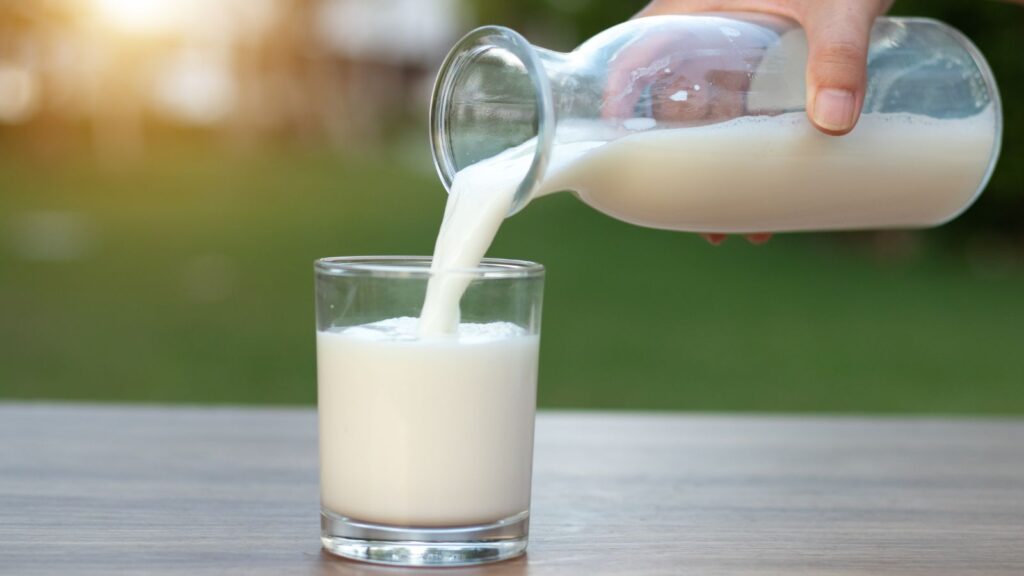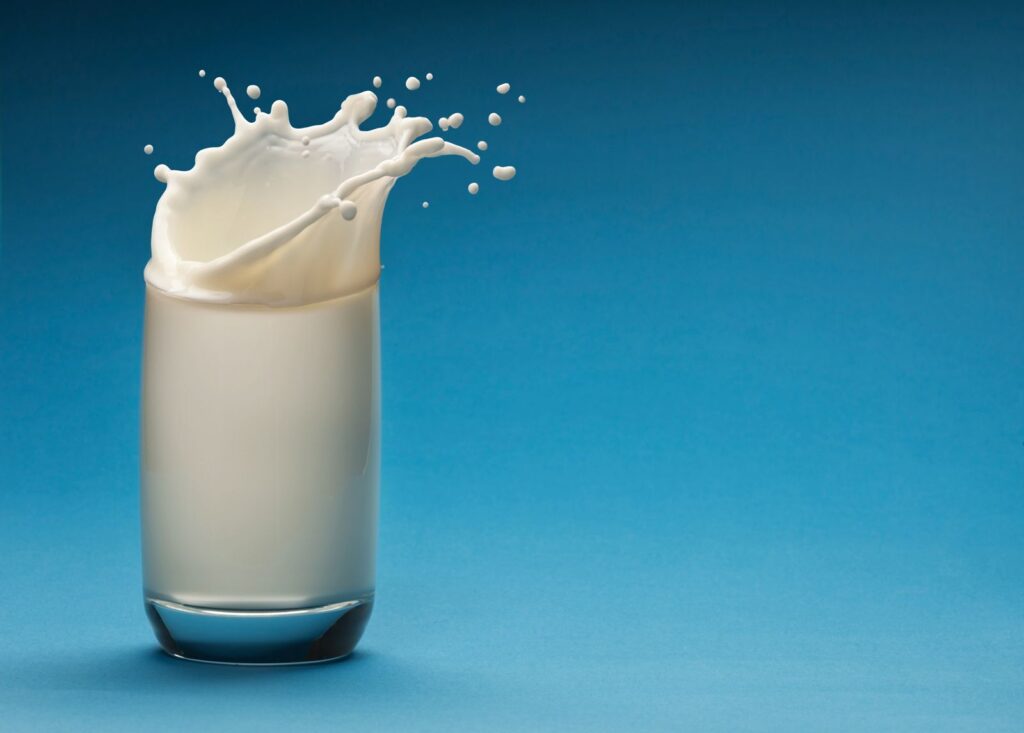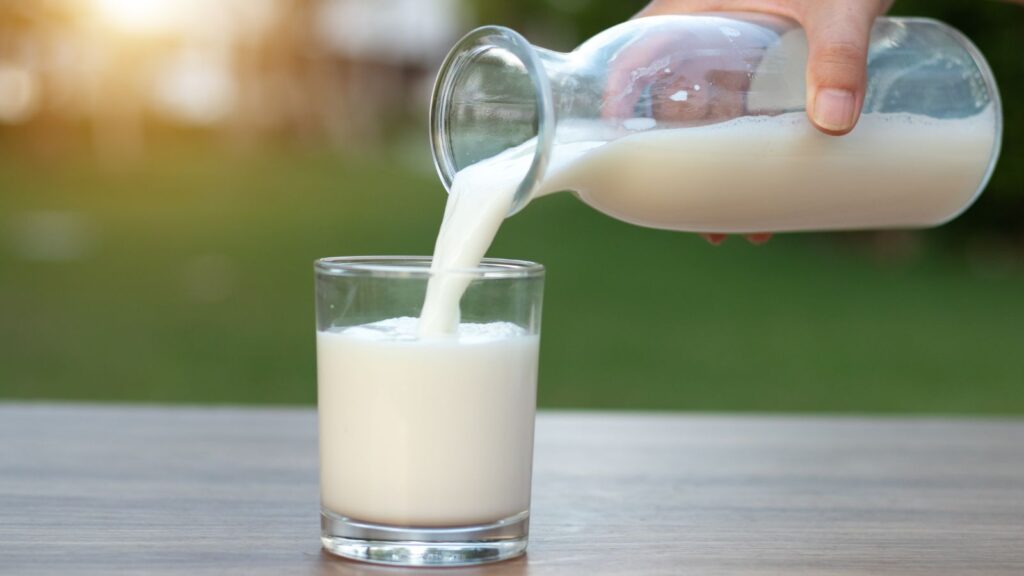When Is the Right Time to Drink Milk and How Much Should You Really Have?

When Is the Right Time to Drink Milk and How Much Should You Really Have?
Everyone has their own rhythm when it comes to eating and drinking habits, and milk—being a staple in many households—is no different. Whether you’re sipping on a warm glass before bed or adding it to your breakfast, milk is often associated with strong bones, energy, and overall wellness. But questions still arise: Is there a best time to drink it? And how much is too much? Let’s break it down.
The Right Time to Drink Milk During the Day
There isn’t a strict rule about when milk must be consumed. It largely depends on your lifestyle, age, and what you’re hoping to gain from it. That said, both modern nutrition and traditional systems like Ayurveda suggest that the timing of milk intake can influence its benefits.

For Adults:
According to Ayurveda, drinking warm milk at night is ideal for adults. It’s believed to aid digestion during sleep and supports calcium absorption, which is crucial for maintaining bone density. Additionally, the natural presence of tryptophan and melatonin precursors in milk may help relax the mind and promote better sleep quality.
For Children:

On the other hand, for growing children, mornings are typically the best time to consume milk. The combination of protein, healthy fats, and essential minerals provides them with sustained energy, making it a great addition to breakfast. The nutrients in milk also support physical development, bone health, and immunity.
Best Time to Drink Milk for Physical Benefits
Drinking Milk at Night:
If you’re looking to improve sleep quality or support bone health, nighttime might be the right choice. Drinking milk before bed has been associated with increased melatonin production, which helps regulate sleep cycles. It also supplies calcium and other nutrients the body can absorb and store while resting.
Drinking Milk in the Morning:
Milk in the morning offers an energy boost that can keep you feeling full and satisfied for longer. Its rich content of carbohydrates, protein, and fats makes it a balanced option that may prevent mid-morning hunger pangs. This is particularly beneficial for children or adults with high-energy demands during the day.

Right Way to Drink Milk According to Ayurveda
Ayurvedic tradition places high importance on how and when we consume foods, including milk. According to these ancient guidelines:
Adults are encouraged to drink milk at night, especially warm milk with a pinch of turmeric or cardamom to aid digestion and enhance its calming effects. This routine is thought to help with insomnia and support deeper rest.
Children benefit more from milk in the early hours, paired with a nutritious breakfast. This supports their high activity levels and growing bodies.
Ayurveda also recommends avoiding milk with salty or sour foods and not consuming it right after heavy meals, as this can disturb digestion.
How Much Milk Should Be Consumed at Once?
Moderation is key. While milk is nutrient-rich, balance matters—too little and you miss out on benefits, too much and it could cause discomfort or side effects.
Here’s a general guide:
Adults: Up to 3 cups (around 750 ml) of milk per day is considered safe and beneficial, depending on dietary needs and other sources of calcium in the diet. However, 500 ml may be sufficient for many people.
Children aged 12 months to 2 years: About 1 2/3 to 2 cups daily.

Children aged 4 to 8 years: Around 2 1/2 cups daily.
This amount includes milk consumed directly as well as in other forms like yogurt, cheese, and milk-based dishes.
Side Effects of Drinking Too Much Milk
Though milk has many health benefits, consuming it in excess can backfire.
Digestive Issues: Many people, especially those with lactose intolerance, may experience bloating, gas, or diarrhea due to the body’s inability to digest lactose, the sugar in milk.
Skin Problems: Some individuals notice a link between excessive dairy intake and acne or oily skin.
Weight and Heart Health: Whole milk is high in saturated fat, and regular overconsumption may contribute to weight gain or increased LDL (bad) cholesterol, potentially raising heart disease risk.
Hormonal Concerns: While the evidence is still debated, some studies suggest high dairy intake might influence hormone levels or be linked to certain cancers, such as prostate cancer.
Milk can be a powerful part of a healthy diet when consumed mindfully. The best time to drink it and the right quantity depends on your age, health goals, and how your body responds to it. Whether you’re enjoying a warm glass before bed or starting your day with it, milk continues to be a reliable source of essential nutrients—but like everything else, it’s best enjoyed in balance.
Disclaimer: The information provided in this article is for general educational and informational purposes only and is not intended as medical advice. Individual dietary needs can vary greatly based on age, health conditions, lifestyle, and personal tolerance.












